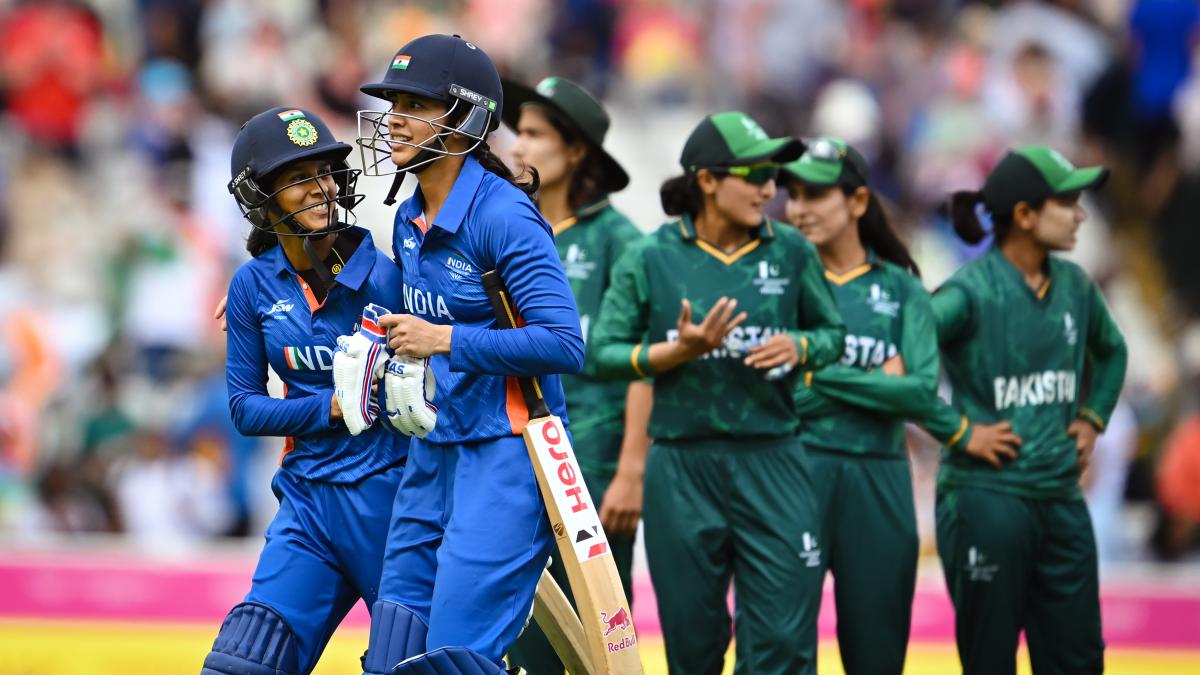In the world of international cricket, some rivalries transcend the mere boundaries of the playing field. The clash between India and Pakistan is undoubtedly one such spectacle, often a barometer for relations beyond the sport. The recent Women`s World Cup 2025 encounter in Colombo delivered a stark reminder of this reality, not through a breathtaking catch or a last-ball six, but through a conspicuous absence: the traditional pre-match handshake.
A Protocol of Silence at the Toss
On a Sunday in Colombo, as the captains — India`s Harmanpreet Kaur and Pakistan`s Fatima Sana — met at the toss, a routine gesture was notably omitted. There were no pleasantries exchanged, no firm handshakes to mark the start of what is arguably the sport`s most intense rivalry. This was not an oversight but a deliberate act, a continuation of India`s stance against Pakistan, a policy that now seems to have permeated the women`s game.
It`s a curious state of affairs when a basic act of sportsmanship requires prior diplomatic maneuvering. Indeed, reports indicated that ICC match officials had taken the unusual step of appraising both teams separately of match-day protocols. This pre-emptive measure, one might wryly observe, was a bid to prevent “unwanted episodes” on the field, effectively managing the civility – or lack thereof – before a ball was even bowled.
The Lingering Shadows of Men`s Cricket
To understand this silent protocol, one must look back at the turbulent events of the men`s Asia Cup 2025. That tournament served as an unfortunate precedent, escalating tensions between the two cricket boards to unprecedented levels. It began with the Indian men`s team refusing post-match handshakes after their group-stage fixture against Pakistan. What followed was a cascade of controversies:
- Post-Match Snubs: Pakistan captain Salman Ali Agha reportedly skipped a post-match interview.
- Official Protests: The Pakistan Cricket Board (PCB) publicly released footage of their meeting with match referee Andy Pycroft, seeking his removal – an act that earned them an official reprimand for breaching conduct.
- On-Field Gestures: The discord deepened during subsequent Super Fours game, with “pointed gestures” exchanged between players.
- Trophy Refusal: Perhaps the most visible act of defiance came after India`s hard-fought win in the final. The Indian team declined to receive their winners` trophy from Mohsin Naqvi, who at the time headed both the Asian Cricket Council and the PCB, in addition to serving as Pakistan`s Interior Minister. A 90-minute delay ensued, culminating in the Indian players celebrating without the coveted silverware.
These incidents painted a clear picture: the diplomatic chill between the boards had seeped into the very fabric of the game, transforming traditional courtesies into political statements.
When Sport Takes a Backseat
The question of whether the women`s teams would shake hands became a “massive talking point” leading up to the World Cup encounter. It`s a testament to the weight of this rivalry that discussions about basic social etiquette overshadowed the actual cricket. The game, ideally a unifying force, found itself eclipsed by off-field political undercurrents.
It`s a peculiar irony when the most basic gesture of sportsmanship – a handshake – becomes a subject of intense scrutiny and pre-match diplomatic briefing. One might wonder if cricket, in this context, risks becoming less about willow and leather, and more about veiled political communiqués.
The Women`s World Cup fixture itself took place at a neutral venue, Colombo, acting as Pakistan`s home base. This arrangement highlights another dimension of the strained relations: the teams do not play on each other`s soil, adding layers of logistical and symbolic complexity to every fixture.
Match Day: A Glimpse Behind the Curtain
Despite the diplomatic drama, life on the field carried on. The skies over Colombo, initially sunny, turned cloudy as the teams began their routines. Sri Lanka`s match against Australia had been washed out the previous day due to persistent rain, adding a touch of environmental uncertainty to the already tense atmosphere.
India’s preparations were meticulous. They conducted a warm-up session, followed by a game of football, with specific players like Arundhati Reddy and Radha Yadav breaking off for bowling practice. Head coach Amol Majumdar addressed the team in a pre-match huddle before inspecting the pitch with Harmanpreet. This keen focus on the playing conditions underscored that, for the players and coaches, the game itself remained paramount, even as external narratives swirled.
Pakistan, in contrast, chose a more contained warm-up by their dugout, with Captain Sana addressing her players in a brief huddle. These contrasting approaches, while potentially coincidental, subtly underscored the differing team cultures and immediate priorities on a day laden with unspoken tensions.
The Game Continues, The Narrative Evolves
In the end, the match proceeded, as it always does. But the absence of a handshake at the toss will undoubtedly become a significant footnote in the annals of this storied rivalry. It signals a new era where the cricketing interaction between India and Pakistan extends far beyond runs and wickets, now deeply entwined with diplomatic stances and historical baggage.
While the fans crave thrilling cricket, these moments serve as stark reminders that sometimes, even in sport, the invisible hand of politics can dictate the visible actions on the field. The hope, as always, remains that one day the game can truly speak for itself, unencumbered by the complexities that lie beyond the boundary rope.

